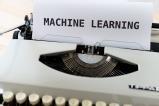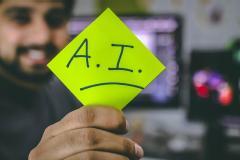Overview: This comprehensive course is designed for individuals with no prior coding experience, providing a complete learning journey from Python fundamentals to machine learning with Python. Over six months, participants will acquire proficiency in Python programming, learn the basics of data science, and gain hands-on experience in applying machine learning algorithms using Python libraries such as scikit-learn. From data preprocessing and exploratory data analysis to supervised and unsupervised learning techniques, students will develop the skills necessary to build and evaluate machine learning models for real-world applications.
Syllabus:
Month 1: Python Fundamentals
Week 1:
- Introduction to Python programming
- Variables, data types, and basic operations
- Control structures: loops and conditionals
Week 2:
- Functions and modules
- File handling and input/output operations
- Error handling and exceptions
Week 3:
- Introduction to Python libraries for data science (NumPy, Pandas, Matplotlib)
- Working with arrays and matrices using NumPy
- Data manipulation and analysis with Pandas
Week 4:
- Data visualization with Matplotlib
- Plotting basic charts and graphs
- Customizing visualizations and adding labels
Month 2: Basics of Data Science
Week 5:
- Introduction to data preprocessing
- Handling missing values and outliers
- Data cleaning and transformation techniques
Week 6:
- Data normalization and scaling
- Feature encoding and categorical data handling
- Introduction to feature selection and dimensionality reduction
Week 7:
- Exploratory data analysis (EDA)
- Descriptive statistics and data summarization
- Visualizing relationships and distributions in data
Month 3: Supervised Learning Algorithms
Week 8:
- Introduction to supervised learning
- Linear regression and logistic regression
- Implementation and interpretation of regression models
Week 9:
- Decision trees and random forests
- Ensemble methods for classification and regression
- Hyperparameter tuning and model optimization
Week 10:
- Support vector machines (SVM)
- Understanding the kernel trick
- Non-linear classification and regression
Month 4: Unsupervised Learning Algorithms
Week 11:
- Introduction to unsupervised learning
- Clustering techniques: K-means and hierarchical clustering
- Evaluating cluster quality and cohesion
Week 12:
- Dimensionality reduction: Principal Component Analysis (PCA)
- Anomaly detection and outlier identification
- Recommender systems
Month 5: Advanced Topics in Machine Learning
Week 13:
- Evaluation metrics and model selection
- Cross-validation and bias-variance tradeoff
- Introduction to ensemble learning
Week 14:
- Neural networks and deep learning
- Building and training neural network models
- Deep learning frameworks (e.g., TensorFlow, Keras)
Month 6: Applied Machine Learning and Project
Week 15:
- Natural Language Processing (NLP)
- Text preprocessing and feature extraction
- Sentiment analysis and text classification
Week 16:
- Time series analysis and forecasting
- Feature engineering for time-dependent data
- ARIMA and other time series models
Week 17:
- Project: Applying machine learning to a real-world dataset
- End-to-end machine learning workflow: data preprocessing, model training, evaluation, and deployment
Week 18:
- Project presentation and wrap-up
- Recap of key concepts and further learning resources
Note: This syllabus provides a general outline for the Machine Learning with Python course, including Python fundamentals and basics of data science. The duration and content can be adjusted based on the pace of the learners and the depth of coverage desired. Additional topics such as advanced neural networks, reinforcement learning, or specific applications of machine learning can be included if time permits







